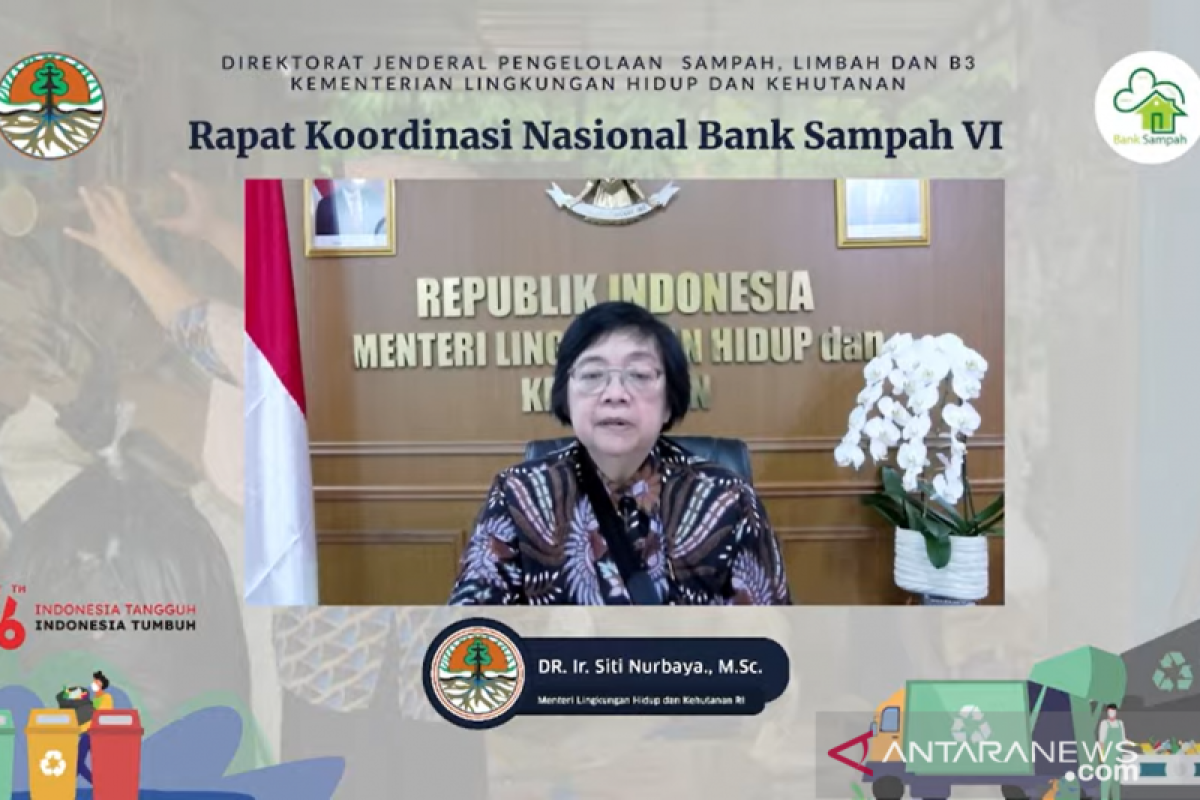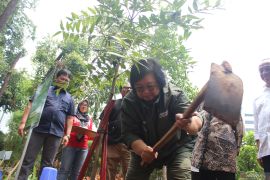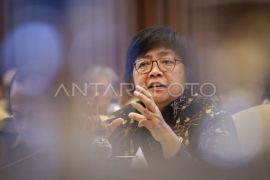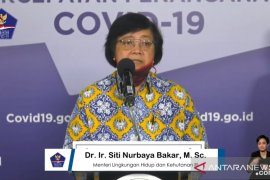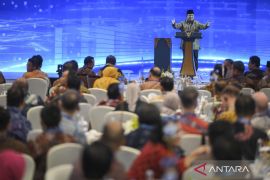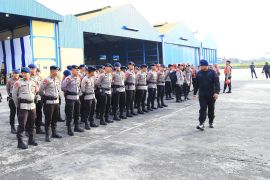"Whether we realize it or not, waste banks play an important role in building this nation. First, as a place for people to join together in growing and institutionalizing a clean lifestyle," she remarked while opening the National Coordination Meeting of the Waste Bank monitored from here on Thursday.
Nurbaya also emphasized that waste banks can be a means of edifying the public by developing initiatives and innovations in the community. There is also an opportunity to empower the community to become more productive.
The minister believes waste banks are also spaces for the actualization of society. Apart from being a place to gather and work together, waste banks are also beneficial for waste management, she affirmed.
Moreover, Nurbaya believes waste banks aid in fostering the values of mutual cooperation (gotong royong) and togetherness.
She explained that waste banks are places for community members to continue to develop and participate in state programs to reduce and manage waste in accordance with the national and regional targets.
Related news: LIPI researcher turns mask waste into economically valuable product
"For now, it is accompanied by the development of the circular economy concept," she affirmed.
According to the Ministry of Environment and Forestry’s data, there are 11,566 waste banks in 363 districts and cities in Indonesia, an addition of some 3,500 units since 2016.
On the same occasion, the minister also informed that waste management in Indonesia had reached 55.96 percent while encouraging effective work to achieve the target of 100-percent waste management by 2025. Related news: Environment ministry sees significant improvement in waste management
Translator: Prisca Triferona, Raka Adji
Editor: Rahmad Nasution
Copyright © ANTARA 2021
